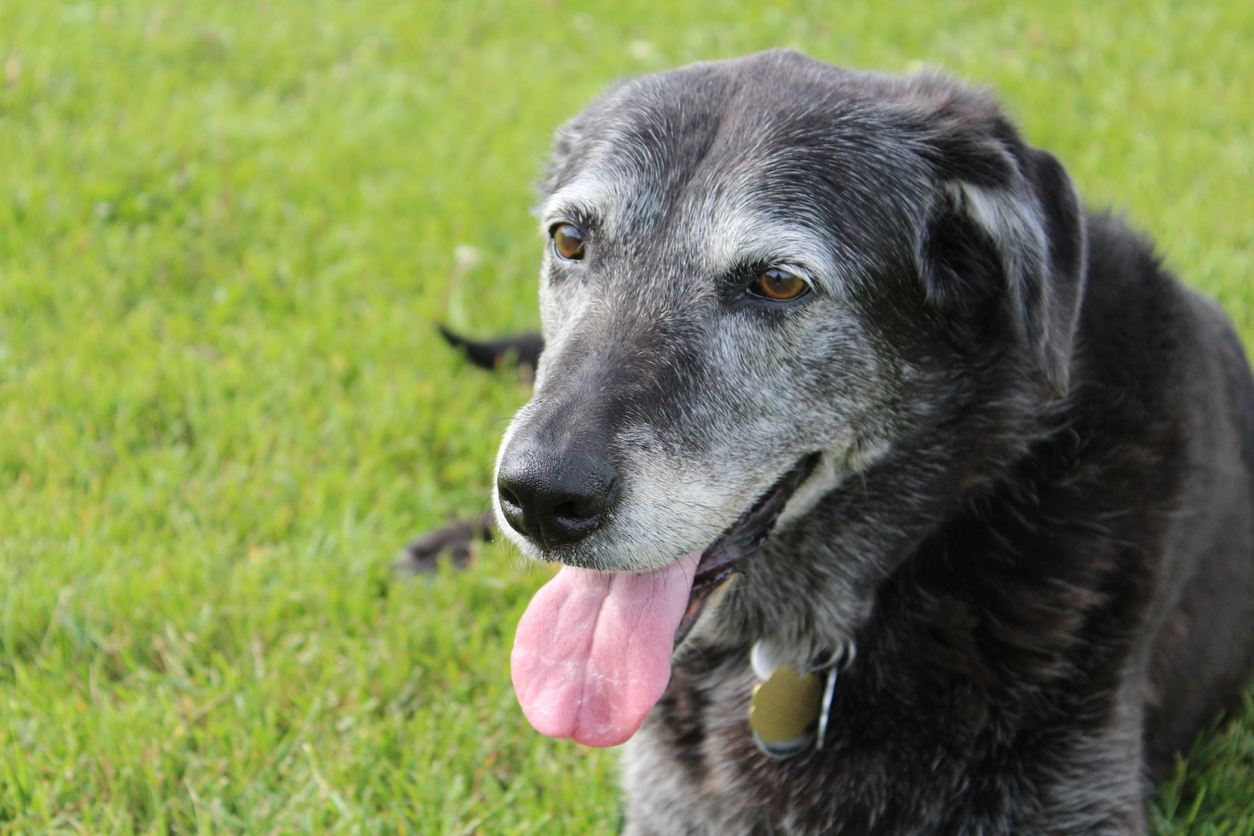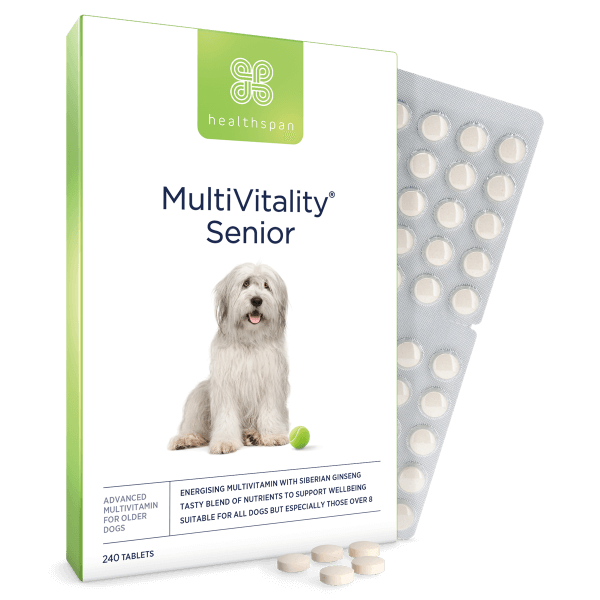When you get a little puppy, it can be hard to imagine them growing up and getting old: but as sad as it is, they always do. Here's what you need to know about the changes they experience, and how to care for them.
🕒 6 min read
Dog lifespan: how long do dogs live?
Taking on a dog is a big responsibility. Recent studies have shown the average life expectancy of dogs to be about 12 years. Of course, that varies hugely between breeds, with large breeds living for nearer 8-10 years, and smaller breeds living for 14 years or more. As a result, dog years for small dogs versus large ones are not the same, and neither are dog years to human years.
We consider a dog to be 'senior' when they're in the last quarter of their lives, so from around 9 years old. In large breed dogs (generally those over 40kg) it can be as young as 6. In small breeds (under 10kg) we might not start classifying them as a mature dog until they're 10 or 11.
It also partly depends on your dog and how they seem in themselves. If you aren't sure of your dog's age and whether they're a 'senior' or not yet, these signs that your dog is getting old might help.

If you're not sure if your dog has reached senior age, check for greying fur around their muzzle or a blue tint to their eyes.
Signs a dog is getting old
Greying fur (typically around their muzzle and eyes) is usually one of the early signs that your dog is getting old, although you won't usually spot this on white-coated dogs.
Another common sign of ageing in dogs is a blue tint to the eyes. This is 'nuclear sclerosis', and is a natural consequence of ageing that doesn't affect eyesight (not to be confused with cataracts, which are a consequence of disease and do affect eyesight). You might also notice your dog going gradually deaf.
One important thing to mention here is that age is not a disease. It's very tempting to put various symptoms and changes in behaviour down to them 'just getting old', but in most cases these are not signs of old age but symptoms of diseases that are common in old age.
For example, old dogs slowing down and sleeping more are signs of heart disease and/or arthritis, rather than just getting old. Similarly, old dogs forgetting their toilet training can be signs of arthritis, kidney failure, and dog dementia.
It's really important that you don't dismiss your dog's symptoms as 'old age' and instead take them to the vet for investigations and treatment so they can live the longest, happiest life possible.
Here's a list of symptoms common in old age, but that are actually signs of disease that need expert advice:
- Slowing down, less energy, reluctance to exercise
- Stiffness (especially after rest), stilted gait, back legs collapsing
- Having accidents in the house
- Confusion, forgetting training, getting lost
Even without these signs, I would recommend visiting your vet every 6 months once your dog gets to senior age, so that you can keep a close eye on their health and treat any problems as soon as they arise.

MultiVitality Senior
Advanced multivitamin for older dogs
- 14 essential vitamins and minerals
- Boosts energy and supports wellbeing
- Supports heart and joint health
Adapting your home for a mature dog
Once your dog reaches senior age, there's a high chance they'll have signs of arthritis (it's common to see an old dog's back legs collapsing) and confusion related to dog dementia.
Here is how you can adapt your home to make their life more comfortable.
Remove slippery surfaces
For an arthritic dog, slippery surfaces can be extremely painful, leading to constant anxiety. Installing rubber mats over any wood or hard floors can make a huge difference, even if just over areas they commonly walk. Another advantage of these mats is they help dogs who are losing their sight find their way around.
Consider your furniture
If your dog is suffering from sight loss or dementia, try to keep their environment as similar as possible. This means not moving furniture around and trying to reduce obstacles left in their way.
Adding ramps
Where dogs used to jump into the back of the car or onto the sofa/bed, they may now need a ramp to help. You can buy ready-made ramps, or DIY options are fine as long as they can take your dog's weight and are wide enough. Falling off won't help their joints either!
Raising food bowls
Another good tip is to raise food bowls by buying or building a stand. This reduces pressure on their neck, which is often arthritic, and can help dogs eat more comfortably.
Comfortable beds
Senior dogs have sore joints and need more support from their bed. Look for an orthopaedic bed that's easily washable and has low sides to help them get in and out. You should also get a bed that's big enough for them not to have to curl up uncomfortably.

Flexi-Joints Plus
Advanced joint support for dogs, with glucosamine, chondroitin and omega 3
- 500 mg glucosamine HCl and 100 mg chondroitin sulphate
- Green-lipped mussel, rich in omega 3
- Can be eaten whole or crumbled into food. Perfect for older dogs
Diet and exercise for a senior dog
It's really important to keep your dog's exercise routine consistent, and don't stop them exercising just because they're senior. As they get older, they might prefer to do the same walk every day, especially if they're struggling with their sight. Smaller, slower, more frequent walks are better for arthritic joints, so it's okay if you only make it a short distance several times a day.
Of course, if your dog's exercise does naturally reduce, they're going to need fewer calories to make sure they don't gain weight. As well as adjusting their calories, consider whether a senior diet would be better suited to them; these are designed to be easier to digest and have lower phosphorus to protect the ageing kidneys.
If your dog starts losing weight and you haven't adjusted their diet, schedule an appointment with your vet.
Supplements for elderly dogs
To support your elderly dog as they age, supplements can be added to their diet. Joint supplements like Flexi-Joints Plus can help promote more comfortable joints, although once your dog is arthritic they shouldn't be used on their own.
Senior multivitamins also help, as they provide extra vitamins and minerals that dogs need as they age, and in an easy-to-absorb form. MultiVitality Senior contains a number of important vitamins and minerals as well as Siberian Ginseng extract, which may provide liver support in dogs.
Conclusion
Dogs are considered senior for a quarter of their lives, meaning it's worth making some changes to look after them properly in their later years. Although old age isn't a disease in itself, changes in your dog's behaviour and health should be taken seriously; always take them to the vet if you suspect something is wrong.







